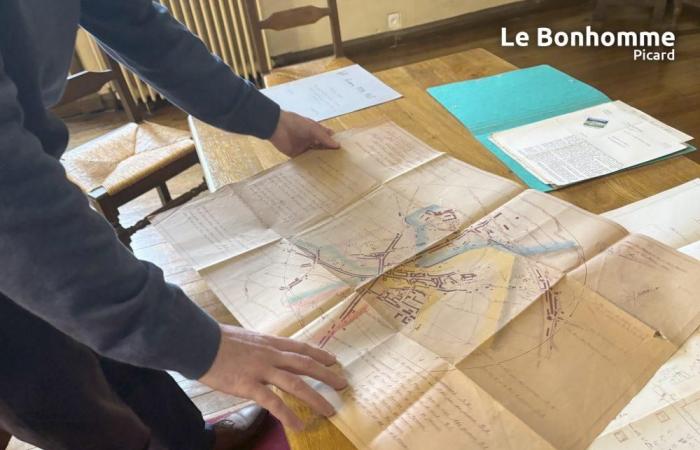
On the occasion of the 80e anniversary of the Liberation, Clermont honors the memory of the Resistance. A film, a literary reissue and a new exhibition look back at the significant events of this period, with a particular focus on local history at the time of the German Occupation.
In 2024, the municipality of Clermont, under the leadership of Mayor Lionel Ollivier, mobilized to celebrate the 80e anniversary of the Liberation as well as that of the landings in Provence and Normandy. Particular attention was paid to Georges Fleury, former sub-prefect of Clermont and key player in the Resistance.
“The mayor particularly wanted us to evoke the memory of Georges Fleury“, explains Emmanuel Bellanger, director of the city’s cultural service. For this, a film retracing the life of this man was produced by Olivier Lallart, with the participation of the Théâtre du Pressoir. This cinematographic work pays tribute to his courage and his central role during this period.
Reissue of the book From within comes strength
Another notable initiative: the reissue of the book From within comes strengthwritten in 1984 by Roland Lucchesi. This work remains to this day the only one to evoke the Resistance in Clermontois. At the request of the association of friends of former FFI, this reissue was enriched thanks to the contributions of Roger Folliot, resistance fighter, and Dominique Lecomte, president of the Association of Allied Airmen Rescuers. “This book has been available for sale since Saturday November 16,” explains Emmanuel Bellanger.
A unique exhibition on the German occupation
November 16 also marked the opening of the exhibition Occupation at the Espace Séraphine Louis. This exhibition, dedicated to the occupation of Clermont by German troops, reveals rare documents steeped in history. “We present some documents from the city archives. Unfortunately, we don't have a lot of things because, by definition, the resistance had to be discreet“, explains Emmanuel Bellanger.
Treasures hidden in the attic or cellar
Moreover, the latter launches an appeal for all people who have “treasures hidden in attics or cellars.” Indeed, from this period, there must necessarily remain documents which remained secret. If people have such documents, they can contact the Clermont town hall to offer them for the exhibition.
Among the exhibits:
- Detailed plans of the cellars used to hide resistance fighters.
- Trenches dug to protect against bombing.
- Historical photos, mostly from German archives, because photography was forbidden at that time.
An essential duty of memory
These initiatives, combining cinema, literature and exhibition, are part of a desire to transmit local memory and pay tribute to the heroes of the Resistance. Visitors will thus be able to better understand the crucial role of Clermont and its inhabitants in the fight against the Nazi occupation.
Practical
“Occupation” exhibition from Saturday November 16 to Sunday November 24 at the Séraphine Louis cultural space. To discover every day from 2 p.m. to 6 p.m. FREE ENTRANCE.
Justine Esteve
On the same theme…
Witness to the Liberation in Grandvilliers, Pierre Mengin received the City medal





